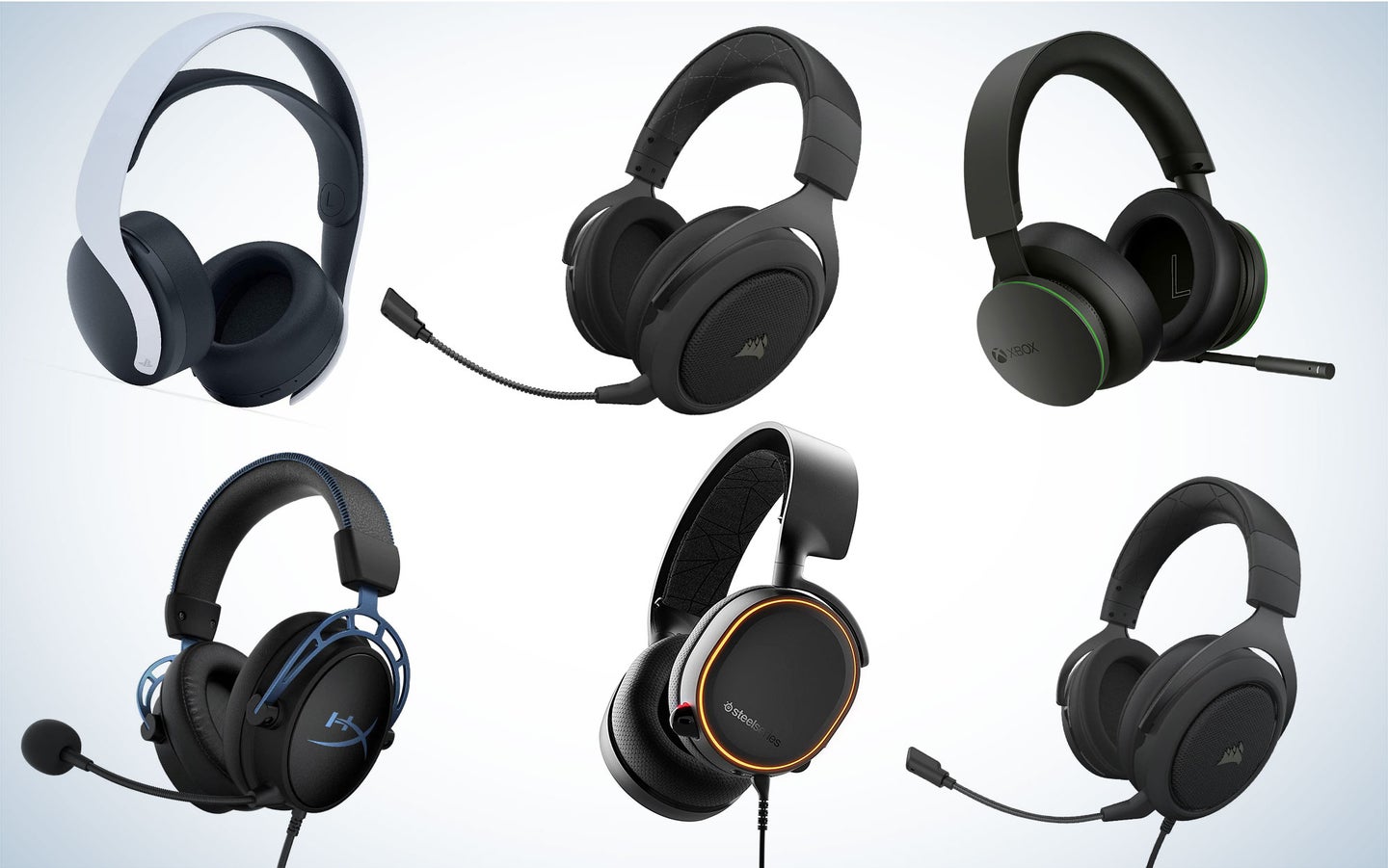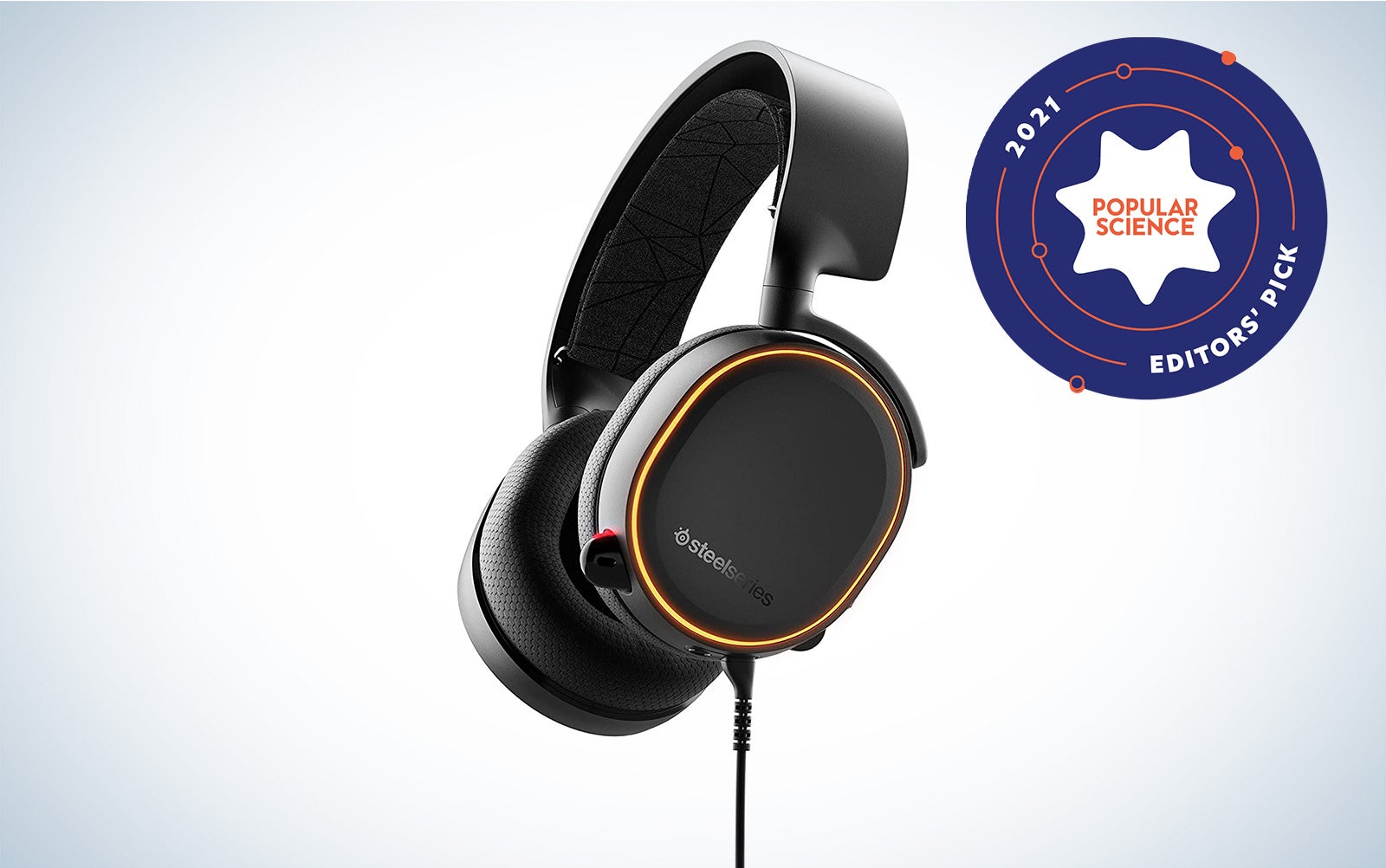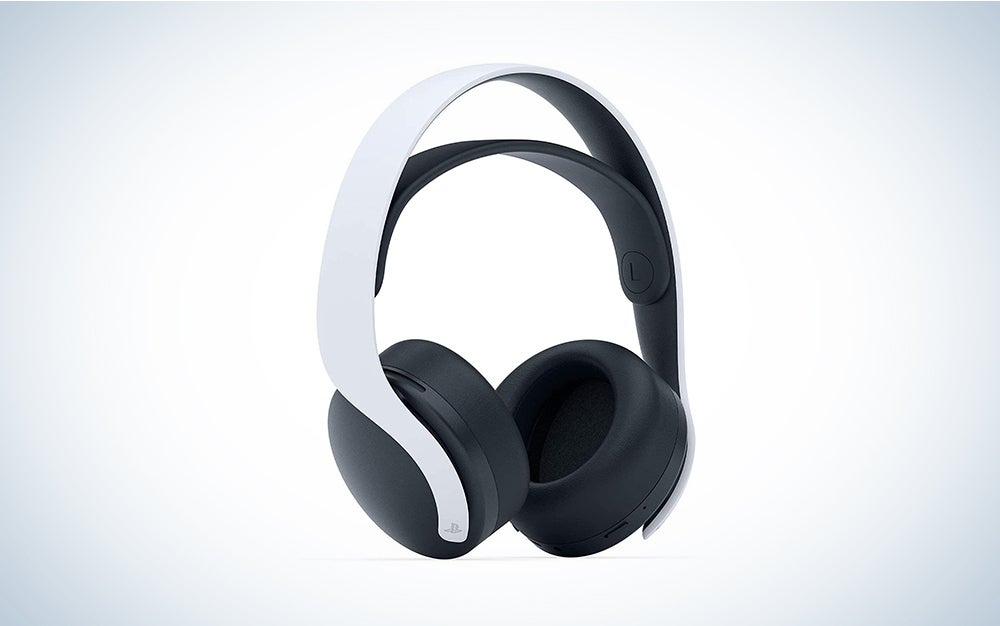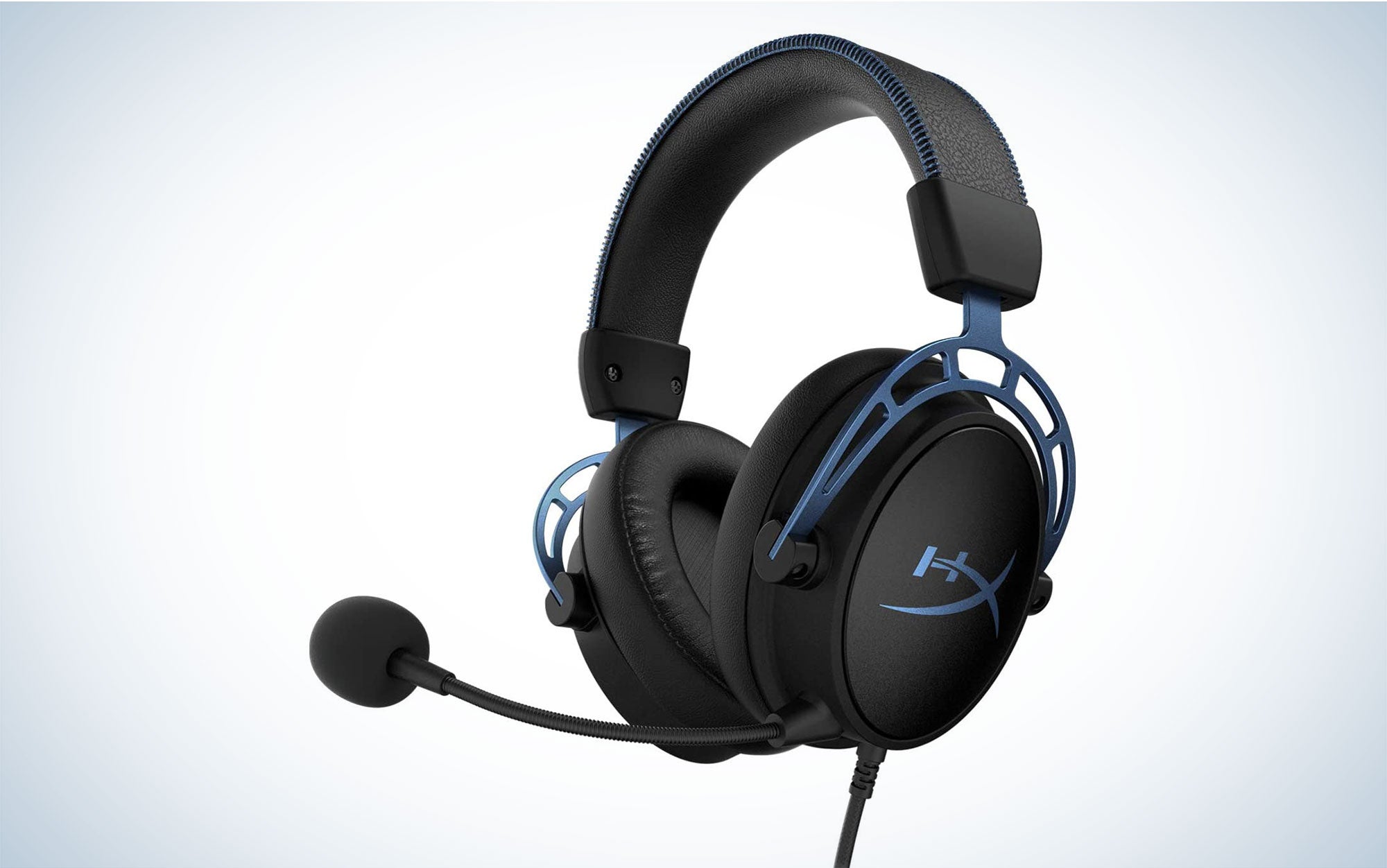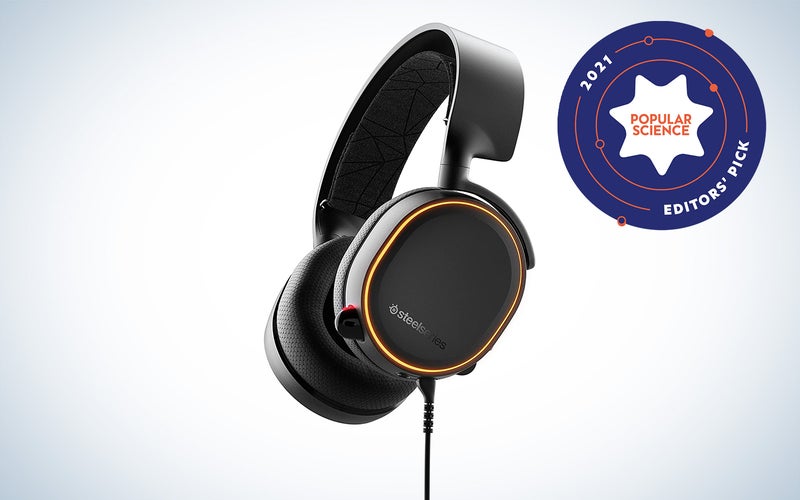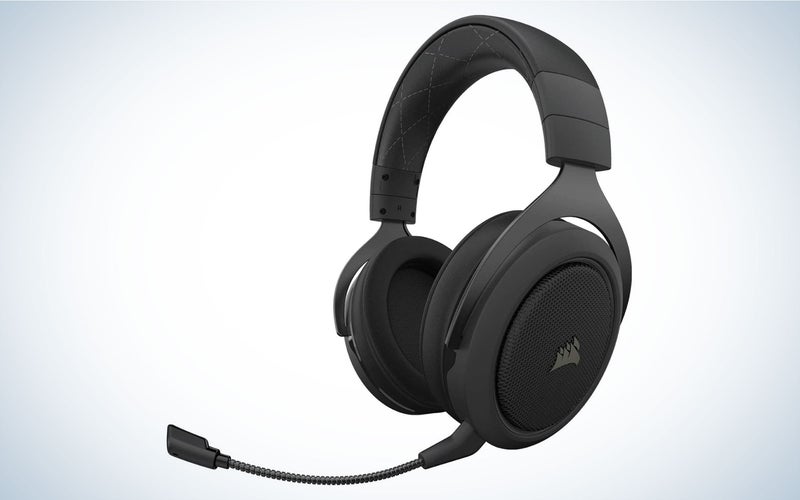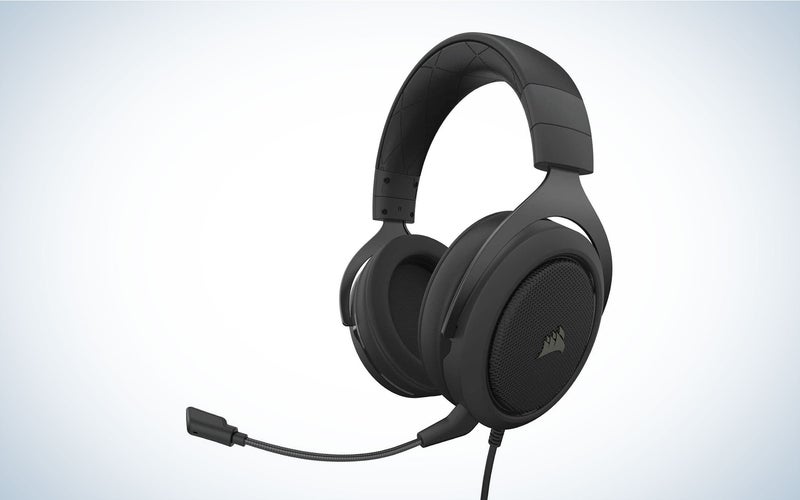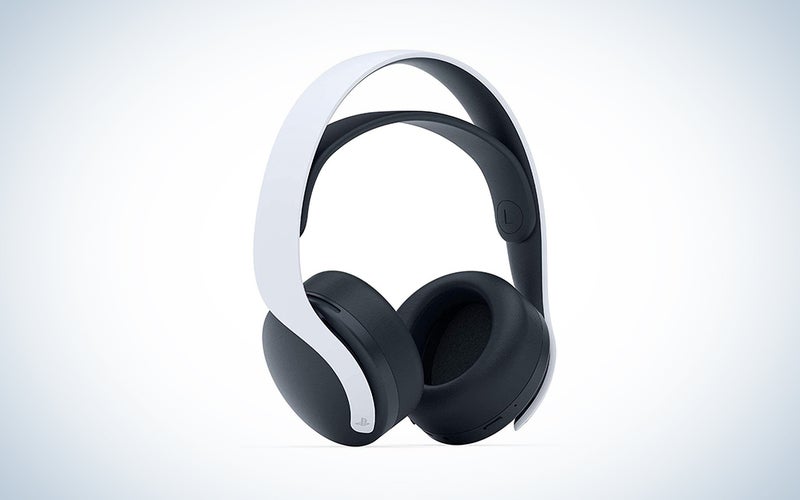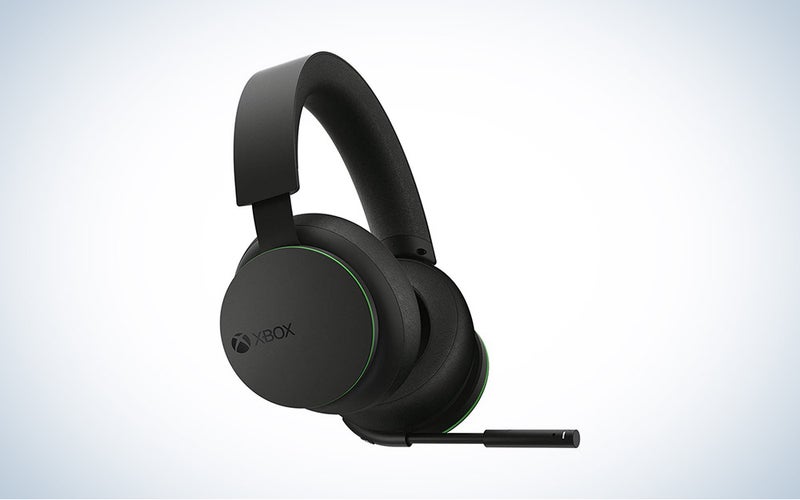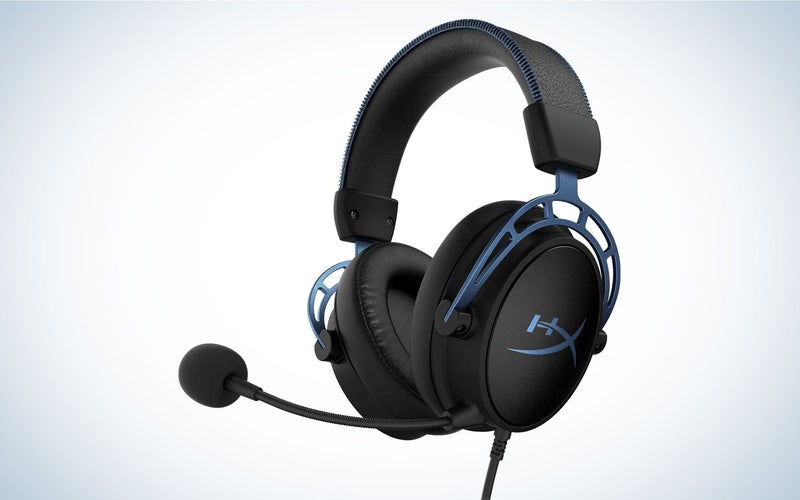We may earn revenue from the products available on this page and participate in affiliate programs. Learn more ›
When the first iteration of Xbox Live hit the market, the package came with a headset that featured one on-ear earphone and a boom mic that sounded like you were talking into a pillow. After 20 years and a few console generations, gaming headsets have come a long way. There’s a wide range of headsets for every console with all kinds of features. The best of the best can get very expensive, but you can find great options without making your wallet cry if you know what to look for. Here’s everything you need to know about the best cheap gaming headsets.
- Best wired for under $100: SteelSeries Arctis 5
- Best wireless for under $100: Corsair HS70 Pro
- Best for $50 or less: Corsair HS50 Pro
- Best for PS5: Sony PlayStation Pulse 3D Wireless Headset
- Best for Xbox: Xbox Wireless Headset
- Best mic: HyperX Cloud Alpha S
How we chose the best cheap gaming headsets
In years of writing about tech, I’ve tested piles of headsets from companies like Logitech G, Astro, Corsair, Cougar, and more, with price points ranging from budget bin up through premium grade gear. I’ve also reviewed dozens of headphones and in-ear monitors, both wired and wireless. In my personal life, I spend upward of 10 hours a week in multiplayer games, in addition to the inevitable conference calls for work and staying connected with friends and family. In other words, personal audio is a big part of my professional and personal lives. To make this list, we set a hard budget ceiling of $100, then selected options for different use cases based on feature set, hands-on gameplay testing, and professional reviews from multiple outlets.
The best cheap gaming headsets: Reviews & Recommendations
Taking the above into consideration, we sat down with a list of every headset we could find. We cut out the ones above our budget first, and then discarded the headsets that were missing key features. We then focused on the six categories above to pick our favorite for each.
Best wired headset for PC under $100: SteelSeries Arctis 5
SteelSeries
Why it made the cut: The Arctis 5 has everything we’re looking for, with a few bells and whistles to boot.
Specs
- Software: SteelSeries Engine
- Connection: USB-A, 3.5mm
- Weight: 9.77oz
- Microphone: Bi-Directional, retractable
- Compatibility: PC, PlayStation 4, PlayStation 5 via USB; all platforms via 3.5mm analog
- Battery life: N/A
Pros
- Chat Mixer
- Retractable Mic
- Universal Compatibility
Cons
- Using the 3.5mm jack drops most of the headset’s advantages
- Mic does not mute when retracted
SteelSeries makes incredible headsets across the board (we’re big fans of the Arctis 9 Wireless, for example), and the Arctis 5 is our pick for best wired headset for PC under $100 and lands right in the middle between its most basic and high-end models, marrying the best of both worlds. The inline chat mixer lets you balance game and chat volume with the twist of a dial so that you don’t have to wait for the match to end to change your settings. It supports DTS Headphone:X 2.0 virtual surround sound when using both the included USB dongle and the SteelSeries Engine software. As with many PC headsets, you can also achieve full functionality on PlayStation 4 or 5 using USB, as well. And, while we would only recommend buying this headset for PC or PlayStation consoles, you can also plug it into an Xbox or Switch for a basic headset experience via 3.5mm headphone cable.
Best wireless headset for PC under $100: Corsair HS70 Pro Wireless
Corsair
Why it made the cut: The Corsair HS70 Pro is one of the few reliable wireless headsets for less than $100, making it our pick for the best wireless headset for PC under $100.
Specs
- Software: Corsair iCue
- Connection: 2.4 GHz wireless via USB dongle
- Weight: 11.64oz
- Microphone: Unidirectional, detachable
- Compatibility: PC, PlayStation 4, PlayStation 5
- Battery life: 16 hours
Pros
- Good audio
- Comfortable wear
- 7.1 virtual surround sound
Cons
- No wired connection options
- Surround sound feature only works on PC
The Corsair HS70 Pro looks very similar to our under $50 pick, the Corsair HS50, but appearances can be deceiving. It cuts the cord, offering a stable 2.4GHz wireless connection through a USB dongle. It also supports 7.1 virtual surround sound on PC. Both headsets benefit from the comfortable fit and sleek look from Corsair’s standard headset design.
Compared to most of our best gaming headsets, the HS70 Pro feels like a budget option. At 16 hours, the battery life is good, but not great. The virtual surround sound only works on PC, compromising its functionality on PlayStation platforms, and, most importantly, it lacks any kind of wired connection, so if the headset’s out of juice, you have to recharge before using it again. All that said, this is among the best wireless headset options you’re going to find for less than $100.
Best cheap gaming headset for $50 or less: Corsair HS50 Pro
Corsair
Why it made the cut: Solid sound and very low price make the Corsair HS50 Pro a good choice when you want to spend as little as possible.
Specs
- Software: None
- Connection: 3.5mm analog
- Weight: 11.50oz
- Microphone: Unidirectional, detachable
- Compatibility: All
- Battery life: N/A
Pros
- Detachable mic
- Universal compatibility
- Stylish headphone design
Cons
- Extremely basic
The HS50 Pro is a workhorse headset and our pick for the best cheap gaming headset for $50 or less. It’ll last you just short of forever, and it’ll be good to go for as long as computers have 3.5mm headset jacks on them. At the same time, it offers the bare minimum, feature-wise. The microphone’s detachable, so that’s something. Still, there are plenty of headsets that cost more but don’t work quite as well. If nothing else, HS50 Pro gets the job done.
Best gaming headset for PS5: Sony PlayStation Pulse 3D
Sony
Why it made the cut: The Pulse 3D’s cavernous earcups take special advantage of the PS5’s Tempest 3D audio.
Specs
- Software: None
- Connection: 2.4GHz wireless via USB dongle, 3.5mm analog
- Weight: 10.41oz
- Microphone: Dual noise-cancelling mic array
- Compatibility: PlayStation 4 and PlayStation 5 via 2.4GHz wireless; all platforms via 3.5mm
- Battery life: 12 hours
Pros
- The best way to enjoy PlayStation 5’s 3D audio
- Wireless
- Wired connection via 3.5mm
- Lightweight
Cons
- No mic boom
- Onboard controls only work in wireless mode
- Less-than-ideal battery life
For PlayStation 5 players, the Pulse 3D is a natural fit. As the best gaming headset for PS5, this headset is literally built to function with the new console and takes advantage of its unique features. Specifically, the ear cups are designed to facilitate the enhanced soundscape created by the PS5’s Tempest 3D audio hardware.
That also means, though, that this cheap gaming headset isn’t quite as flexible as others on this list. Though it works on PC and other platforms via an analog wired connection, your games might not sound exactly the same. The biggest downside, though, is the lack of a boom mic. The dual noise-cancelling mic array built into the headset looks sleek, but sounds slightly muffled and picks up more ambient noise.
Best Xbox gaming headset: Xbox Wireless Headset
Microsoft
Why it made the cut: The Xbox Wireless Headset is the best Xbox gaming headset because it offers a strong set of features for its price.
Specs
- Software: Xbox Accessories
- Connection: Xbox Wireless (2.4GHz)
- Weight: 11.01oz
- Microphone: Unclassified dual mic setup on built-in boom arm
- Compatibility: Xbox One, Xbox Series S, Xbox Series X via Xbox Wireless; Windows PC via Xbox wireless dongle (sold separately); Bluetooth 4.2 connectivity; Xbox consoles and Windows via USB-C wired connection
- Battery life: 15 hours
Pros
- Xbox and PC compatibility via multiple options (Xbox Wireless, Bluetooth, USB Type-C)
- Solid battery life
- Chat mixer
Cons
- No 3.5mm option
- Wireless on PC requires a separate dongle
Like the PlayStation 5 Pulse 3D headset, Microsoft built the Xbox Wireless Headset with its Xbox ecosystem in mind. The result has a more conventional sound, but plays nicely with Windows and other platforms. The cheap gaming headset works wirelessly right out of the box with the Xbox Series X and Xbox One consoles, with configuration options through the Xbox Accessories app. If you want to use it with a PC, you can connect via Bluetooth or a USB-C wired connection. There’s also an Xbox Wireless Adapter for PC, which allows you to use the same seamless 2.4GHz connection that you get on Xbox consoles–but that’s an extra $25. Additionally, you can connect both via Xbox Wireless and Bluetooth at the same time to receive audio from multiple devices.
That’s on top of the headset generally sounding good, offering an on-headset chat mixer, and solid battery mid-tier life. As a nice bonus, the mic also lights up when muted with the onboard mute button.
Best mic: HyperX Cloud Alpha S
HyperX
Why it made the cut: The HyperX Cloud Alpha S is another heavy-hitting mid-tier gaming headset with a particularly clean and clear microphone.
Specs:
- Software: HyperX Ngenuity
- Connection: USB-A Wired, 3.5mm analog
- Weight: 11.32oz
- Microphone: Bi-Directional, detachable
- Compatibility: PC, PlayStation 4 and PlayStation 5 via USB; All via 3.5mm analog
- Battery life: N/A
Pros:
- Lots of compatibility options
- Chat mixer on headset
- Better-than-average mic
- Adjustable vents for bass/isolation
Cons:
- Using 3.5mm will remove many of the headset’s advantages
The HyperX Cloud Alpha S can go toe-to-toe with our top pick, the SteelSeries Arctis 5. As a gaming headset with the best mic, it offers great sound quality, feels comfortable, and has a few special features, including adjustable vents that allow you to adjust your bass, detachable inline audio controls, and 3.5mm support. (Technically, the PC-exclusive Cloud Alpha S retails for $129.99, but HyperX seems to have cut the price, putting it in our price range.)
We’re giving the Cloud Alpha S a shoutout because it’s been praised in multiple reviews for its microphone. Microphone sound on gaming headsets can come down to personal preference, so it may not be a revelation for everyone, but it’s one of the few in this range that stands out.
Things to consider before buying a cheap gaming headset
A great gaming headset should find a balance between quality and price. These are inherently very personal and social devices: They sit on your head, pump audio directly into your ears for long periods of time, and deliver your voice to friends. It should be comfortable, and both your incoming and outgoing audio should be clean. Obviously, it should also be fully functional on whatever platform or platforms you use to play games.
Compatibility
Before you pick out a headset, think about what devices you plan to pair with it. Many headsets are designed with a particular game console or a gaming PC in mind. Depending on the situation, a headset may only work with one platform, or it may have specific features optimized for one.
Realistically, if you’re buying a headset to work across many consoles and platforms, you should expect to buy a simple headset with few features. A wired headset with a 3.5mm analog connection is the only true universal headset option, but it only allows for the most basic feature set, and even that is subject to compatibility limitations. (You’ll need a Lightning-to-USB dongle to plug it into an iPhone 14 or before, and a USB-C adapter for the iPhone 15.) USB-C opens the door for more digital features but isn’t compatible with all phones. Wireless headsets, depending on the connection type, are often limited to specific platforms.
In general, our recommendation is to match your headset to the single platform you use most for multiplayer games with friends. This way, you get the best audio experience where you need it most.
Wired or wireless
When money is no object, you can easily get a fantastic wireless headset that delivers a best-in-class experience with top-tier audio. When you’re on a budget, though, compromises are inevitable. As the list below outlines, you can get a genuinely great wired headset for less than $100. There are solid wireless headsets around that price point, too, but they sit firmly in the middle. Some of the best features, like extended battery life, are relegated to those more expensive headsets.
Battery life
If you’re going wireless, battery life is a key spec that you’ll want to note when comparing headsets. At this price point, a 15-hour battery is pretty typical. (That’s 15 hours of use, so it may last a few days, depending on how much you play). If the estimated battery life dips below 15 hours, you should expect that you will need to charge your headset after every use.
Configuration software
Generally, most modern headsets are designed to work without any companion software, but some headsets do offer configuration apps that let you configure equalizer settings, virtual surround sound, and, occasionally, RGB lighting.
Many software suites, like Logitech G HUB or Razer Synapse, support a wide range of products from the same vendor. This shouldn’t be the only consideration when picking out a headset, but don’t discard it out of hand.
FAQs
Q: Are all gaming headsets universal?
Definitely not! Some are more versatile than others, though. The only truly universal gaming headsets connect via 3.5mm analog connection. Generally speaking, these are the most basic models, without configuration software or advanced features of any kind. Most headsets have at least some capabilities that are designed with one or two platforms in mind. That said, many mid- and high-end headsets offer a 3.5mm connection, making them technically functional with most platforms.
Q: Are wireless headsets good for gaming?
Absolutely. At this point, you can get a reasonably priced wireless headset that provides a stable connection with minimal lag and solid battery life. Ideally, look for a headset with 15-20 hours of battery life and some kind of 2.4GHz wireless connection. Despite recent attempts to extend wireless compatibility to mobile devices, Bluetooth doesn’t cut it for games with audio cues. It should also be comfortable enough to wear for a long time. Though, really, it’s not a bad idea to get up from your computer and take your headset off once in a while.
Q: Will my headset work with PlayStation or Xbox?
Check the box. Most packaging will make it very clear what platform(s) work best with any given headset. If your headset offers a 3.5mm connectivity option, then you can plug into the controller on any PS4, PS5, Xbox Series S/X controller, a Nintendo Switch, or any PC. First-generation Xbox One controllers require a headphone adapter, so check your controller before picking up a headset, just in case.
Final thoughts on the best cheap gaming headsets
- Best wired for under $100: SteelSeries Arctis 5
- Best wireless for under $100: Corsair HS70 Pro
- Best for $50 or less: Corsair HS50 Pro
- Best for PS5: Sony PlayStation Pulse 3D Wireless Headset
- Best for Xbox: Xbox Wireless Headset
- Best mic: HyperX Cloud Alpha S
At the low end of the spectrum, getting a good gaming headset comes down to sticking with well-known, reliable gaming audio brands. The SteelSeries and HyperX options will give you both solid, reliable audio and a good mic that goes easy on your friend’s ears while also plugging insto just about anything on the market. The dual Bluetooth and Xbox connectivity of the Xbox Wireless headset is appealing, too—you could connect to Xbox for your game audio and Discord for chat without having to sacrifice either.
The thing to watch out for are the truly cheap gaming headsets out there. If you spend less than $50 or start looking at unknown brands, there’s no guarantee that the product will work well … or work at all. It’s harder to guarantee a reliable experience, and they often feature more plastic, less metal, and sketchier support. There are definitely limitations, especially if you’re interested in a wireless headset, but there are many great cheap headset options out there, even beyond the ones on this list, as long as you set reasonable expectations about what you’ll get for your money.
Why trust us
Popular Science started writing about technology more than 150 years ago. There was no such thing as “gadget writing” when we published our first issue in 1872, but if there was, our mission to demystify the world of innovation for everyday readers means we would have been all over it. Here in the present, PopSci is fully committed to helping readers navigate the increasingly intimidating array of devices on the market right now.
Our writers and editors have combined decades of experience covering and reviewing consumer electronics. We each have our own obsessive specialties—from high-end audio to video games to cameras and beyond—but when we’re reviewing devices outside of our immediate wheelhouses, we do our best to seek out trustworthy voices and opinions to help guide people to the very best recommendations. We know we don’t know everything, but we’re excited to live through the analysis paralysis that internet shopping can spur so readers don’t have to.
